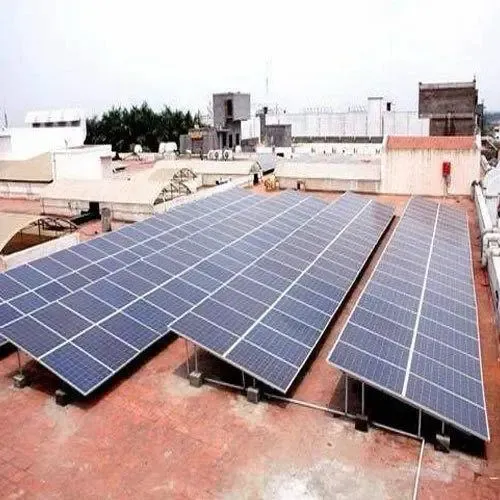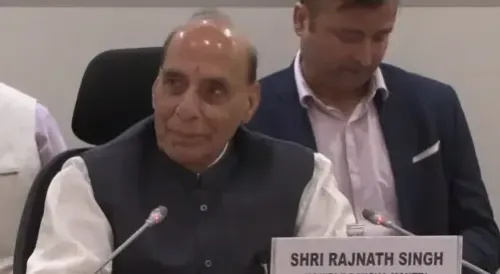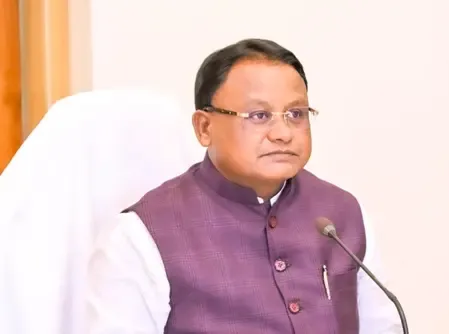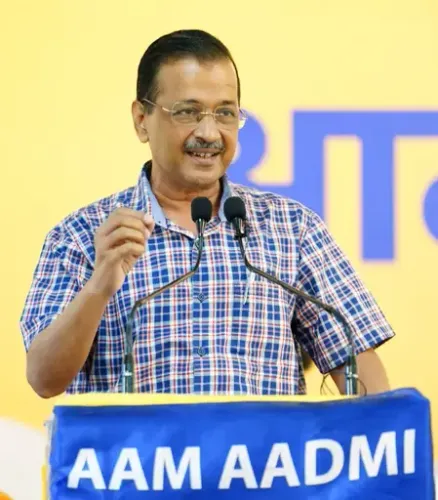Is TN Ready to Install Rooftop Solar Panels on State Government Buildings to Slash Power Bills?

Synopsis
Key Takeaways
- 40 MW of rooftop solar systems to be installed.
- Initial focus on government buildings.
- Expected reduction in electricity bills by 40-50%.
- Developers will bear the upfront costs.
- Tariff-based competitive bidding model will be used.
Chennai, Oct 7 (NationPress) In a significant initiative aimed at reducing energy expenses and advancing sustainable energy solutions, the Tamil Nadu Green Energy Corporation Limited (TNGECL) has announced a bidding process for the installation of 40 MW of grid-connected rooftop solar systems on state government buildings throughout Tamil Nadu.
This initiative is anticipated to assist various state departments in decreasing their electricity costs, as many have been experiencing overdue bills for months, placing a strain on the state's power utility. A senior official from TNGECL remarked, “This marks the first instance where we are undertaking such a large-scale solar project for government office buildings across Tamil Nadu.”
In the past, the Tamil Nadu Energy Development Agency (TEDA), which now operates under TNGECL, successfully installed solar panels in 250 schools, totaling a capacity of 1.5 MW.
“While some government offices already utilize solar systems, we currently lack comprehensive data regarding their usage,” the official noted.
TNGECL initially envisioned a rollout of 200 MW but is commencing with 40 MW in this first phase. The projects will be executed under the Renewable Energy Service Company (RESCO) model via tariff-based competitive bidding.
Developers will install and maintain the systems without any initial cost to the government while selling the generated power at a predetermined tariff. These installations will operate under a net feed-in mechanism, allowing excess power to be returned to the grid.
During this initial phase, rooftop solar installations are set to take place in Chennai, Chengalpattu, Kancheepuram, and Tiruvallur. The Chennai Corporation has already identified approximately 105 buildings for this initiative, with site inspections currently in progress.
Priority will be given to government offices with electricity loads exceeding 5 kW or those with high consumption rates. The required roof space varies from 2,000 to 10,000 sq ft per building.
According to the tender, a pre-bid meeting is scheduled for October 8. Online submissions for bids will be accepted from October 15 to 27, with technical bids being analyzed on October 28.
Bidders are required to submit an earnest money deposit of Rs 50 lakh and a performance bank guarantee of Rs 1 crore per MW within 15 days after signing the agreement.
TNGECL estimates the installation costs to be around Rs 6 crore per MW, though this amount may vary based on market conditions. Officials indicated that once operational, these solar systems could potentially reduce the monthly electricity bills of government buildings by 40-50%, alleviating the Tamil Nadu Generation and Distribution Corporation's (Tangedco) challenges in recovering approximately Rs 2,000 crore in outstanding dues from governmental offices and local entities.









